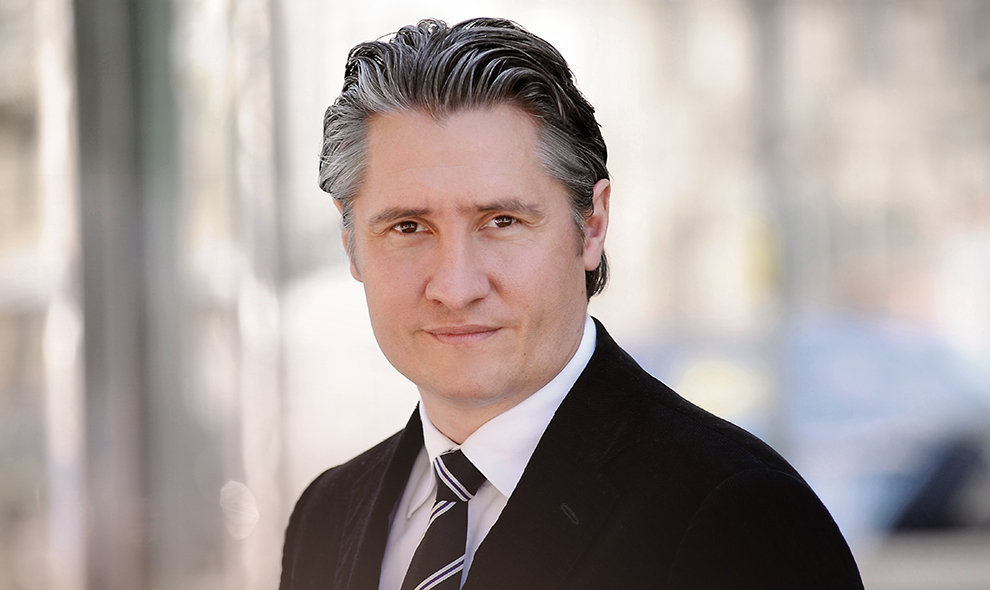Autonomous vehicles in particular may require great changes in the approach to IP. What changes do you foresee on the horizon?
Indeed, the automotive industries are currently facing enormous, far-reaching changes. Digitalisation will lead to completely new concepts of automotive production and transportation not only regarding the technical details but also regarding future customers and customer behaviour; the individual customer will be replaced by groups of customers. These groups of customers will necessarily have to organise themselves, for instance, in sharing systems. This can lead to entirely new strategies of patenting. Under certain circumstances, the patenting strategy could then be aimed not only at producers of automotive systems but also be developed with regard to hiring companies that may be organised in completely new ways.
Regarding the technical details of automotive, however, the patenting strategy will remain the same. Intellectual Property, and patents most prominently, will still be the dominant tool to secure leadership within this specific market for a limited period.
However, patenting strategies of technical details of autonomous driving will be similar to the patenting strategies of IT and telecommunication companies, so that internal decision-making processes and the evaluation of innovation and know-how will get closer to the strategies known by the IT and telecommunication companies.
Autonomy requires innovations in artificial intelligence, mapping, sensors and connectivity. Is the law up to speed in respects to the fast-paced nature of AI?
As I have pointed out in a recent article in a publication by the “Innovation commission” consulting the German Government, I am convinced that artificial intelligence will lead to a boost of diversity in innovation, comparable perhaps with the start of computation and the technical revolution triggered by it after the Second World War. With the growth of artificial intelligence, two areas of law will move more and more into the focus of jurisdiction. On the one hand, there is innovative success, until now and in all current law systems worldwide judged on the basis of the individual performance of the average craftsman, hence the performance of a human being. Will the judgement be the same if the invention was produced by an artificial intelligence? Will the height of an unprecedented invention still be a valid criterion for the exclusive (although not eternal) rights of a patent?
Another point in need of clarification will be the question of who will be the owner of the intellectual property behind an innovation that might have been created to a far extent, or even entirely, by an artificial intelligence. Today, human beings are the creators of inventions either by hard work or by sudden insight. Hence, currently, most legal systems worldwide ascribe the intellectual property of an invention to the person behind it or, in the case of an invention made in the context of dependent work, their respective employers. How about inventions made by processors? Will the invention generated belong to the owner of the processor or the developer of the software behind the artificial intelligence? Or, indeed, to the person who came up with the task that made the processor develop the invention? These are just some of the highly relevant questions that will come up as soon as artificial intelligence becomes more dominant in the field of innovation.
Today, human beings are the creators of inventions either by hard work or by sudden insight.
Much of the current investment is in areas that IP protects poorly or patchily from jurisdiction to jurisdiction: computer programs, computer generated technology, data and business models. Do you think this will cause more emphasis to be placed on trade secrets and confidentiality?
Secrecy is a central tool for the protection of competitive advantages. Over the last few years, legislation has done a lot to guarantee the protection of secrecy within the European Union. On the one hand, the protection of know-how has been officially acknowledged. On the other hand, the abuse of secrecy has been tackled as far as a certain degree of documentation has become obligatory, so that participants in the market will not be withheld unduly from developing their own ideas. New insights from information that is not under secrecy will simply not be protected.
How ‘peaceful’ is the automotive sector in terms of IP disputes and litigation?
In my experience, patent infringement litigations fought out openly, i.e. publicly, are rare and random. Companies simply know that conclusive patent infringement claims can never entirely overcome disadvantages in the market. However, the market put before the actual automotive production, i.e. the market of automotive suppliers, is fought over fiercely. This market is under pressure not only by more and more restrictive price policies within the automotive industries but also by the density of innovation in this section. As such, in the field of automotive, intellectual property is one of the most essential elements of creating a safe space for company-owned know-how and innovation while at the same time fighting off imitators and competitors as well as potential take-overs.
Do you see this changing with the rise of innovation, especially for autonomous cars?
It is perfectly possible that universities can gain essential power in the field of intellectual property, especially as soon as the automotive industry will increasingly have to adapt to the digital economy. The digital economy is profoundly characterised by infringement litigation – perhaps due to the much more rapid push of innovations and by far shorter product life cycles.
Nils T F Schmid
Boehmert & Boehmert
Address: Pettenkoferstrasse 22, 80336 Munich, Germany
Tel: +49 (89) 55 96 80
Fax: +49 (89) 55 96 85 090
Email: n.schmid@boehmert.de
Nils T F Schmid specialises in traditional mechanical engineering, defence, and artificial intelligence. For his clients, especially medium-sized companies in Germany/Europe as well as Asian and American corporations, he identifies the best possible protection of their innovations. He drafts, develops and defends European and global patent strategies and sees to their implementation with regard to the building up and management of successful patent and design portfolios.
As one of the largest and most renowned law firms for Intellectual Property in Europe, BOEHMERT & BOEHMERT offer their clients "everything in IP" from a single source. From advising on patents for technical inventions to protecting designs and trademarks to copyright, antitrust and competition law. In all classical scientific and engineering disciplines, in traditional and young industries, across national borders.




















